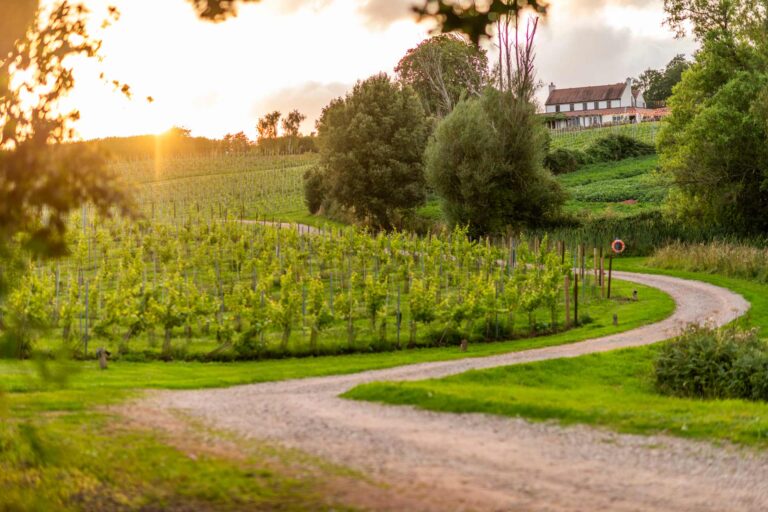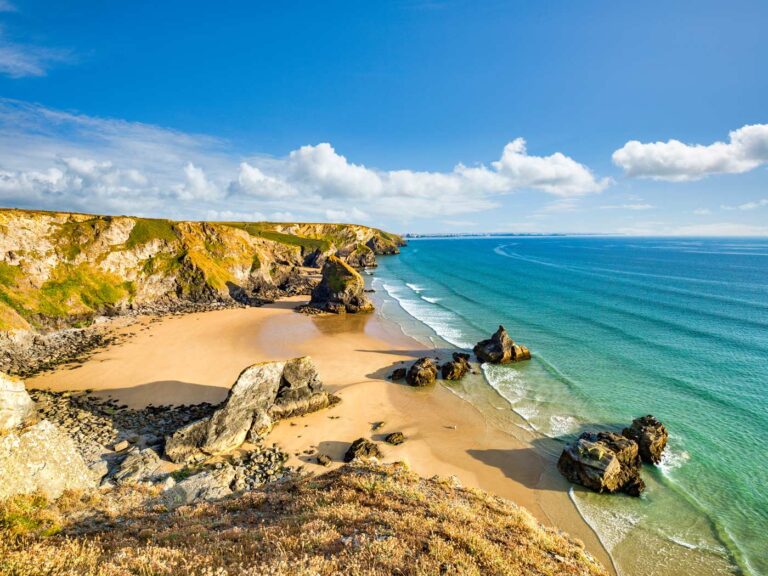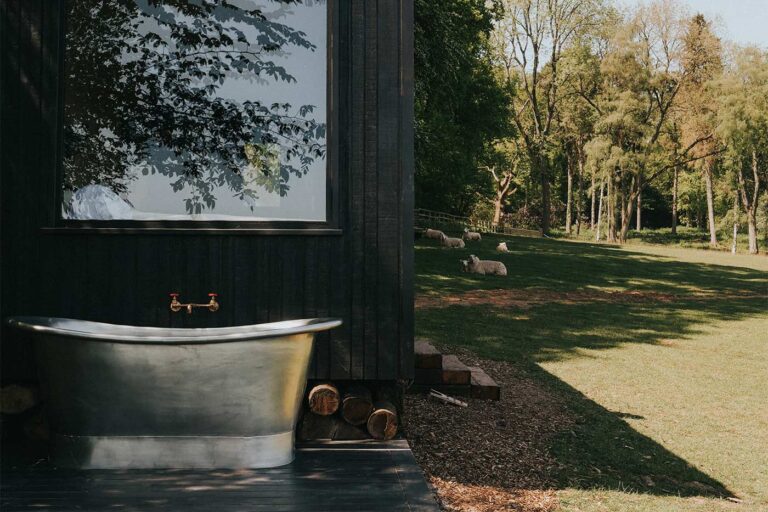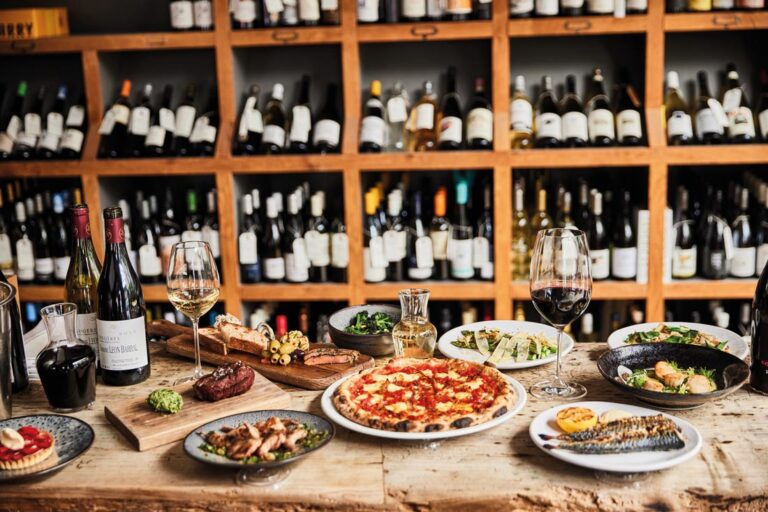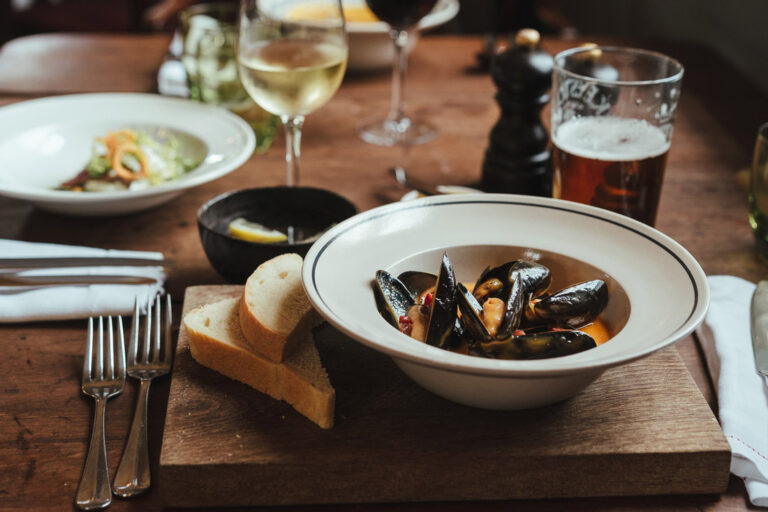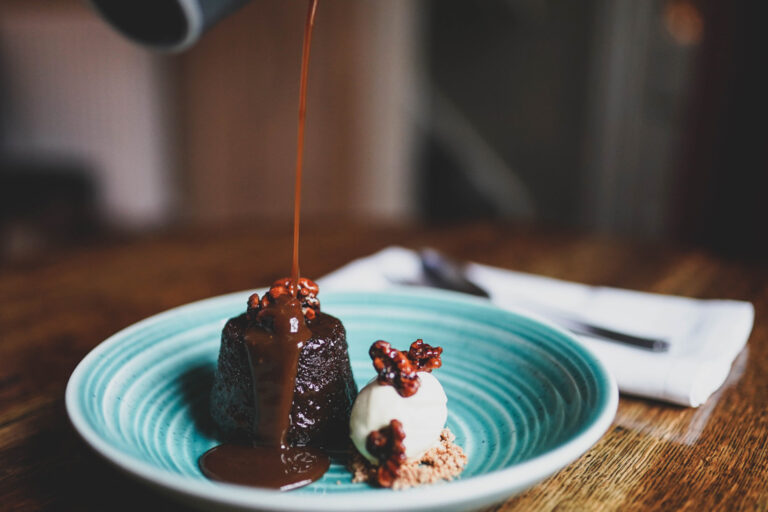Should meat be off the menu?
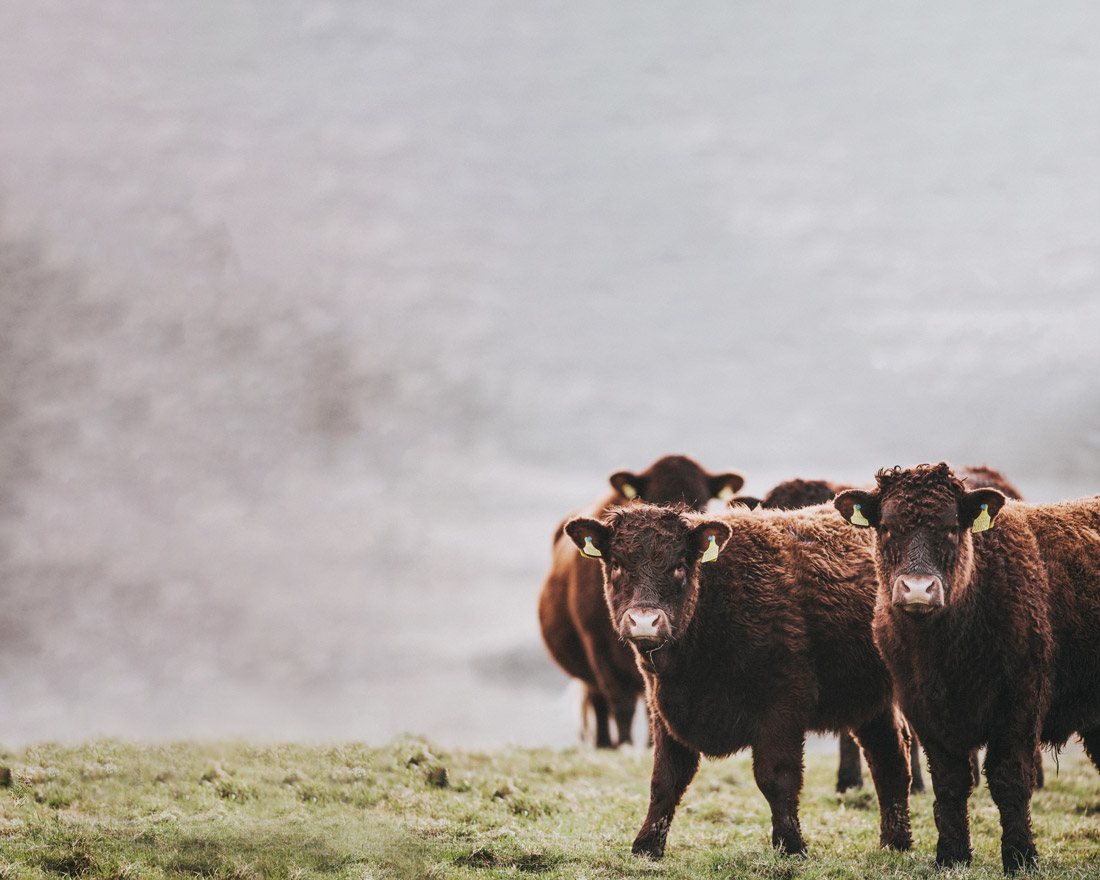
Thanks to the highly charged debate surrounding the meat industry, it’s difficult not to feel you’re contributing to the climate crisis every time you tuck into a steak. But is giving it up essential in the race to reduce global warming?
Most people know that one of the easiest ways to reduce their carbon footprint is by making small changes to what they eat. It’s widely accepted that eating more plant-centric meals is better for the planet (and our health), but things get complicated when the conversation moves to whether meat still has a place on our plates.
Intensely farmed meat clearly isn’t good. It’s a key driver of deforestation in countries like Brazil where rainforest is cleared in order to grow the soy used to feed farmed cattle across the world. Industrialised farming itself, where hundreds of animals are reared on a very small area of land, is also a significant contributor to climate change.
You’d think British farming would be considerably more environmentally friendly than the super-sized farming prevalent in parts of the USA and South America but, sadly, that’s not the case. Demand for cheap food has made intensive farming the norm in the UK too. And while not all intensively farmed British animals are fed imported soy, many are reared on home-grown maize and rye grass which can also have a detrimental effect on local ecosystems.
‘Conventional British farming is basically intensive farming – and it dominates our most productive areas of farming,’ says Tim Martin, filmmaker and co-founder of social enterprise Farm Wilder CIC.
‘It’s responsible for monocultures of crops, whether that’s giant arable fields of wheat, barley and oilseed rape, or the rye grass and maize grown to feed cattle. These crops rely on fertilisers and pesticides which damage the health of the soil and lead to both a huge loss of carbon and a reduction in wildlife.’
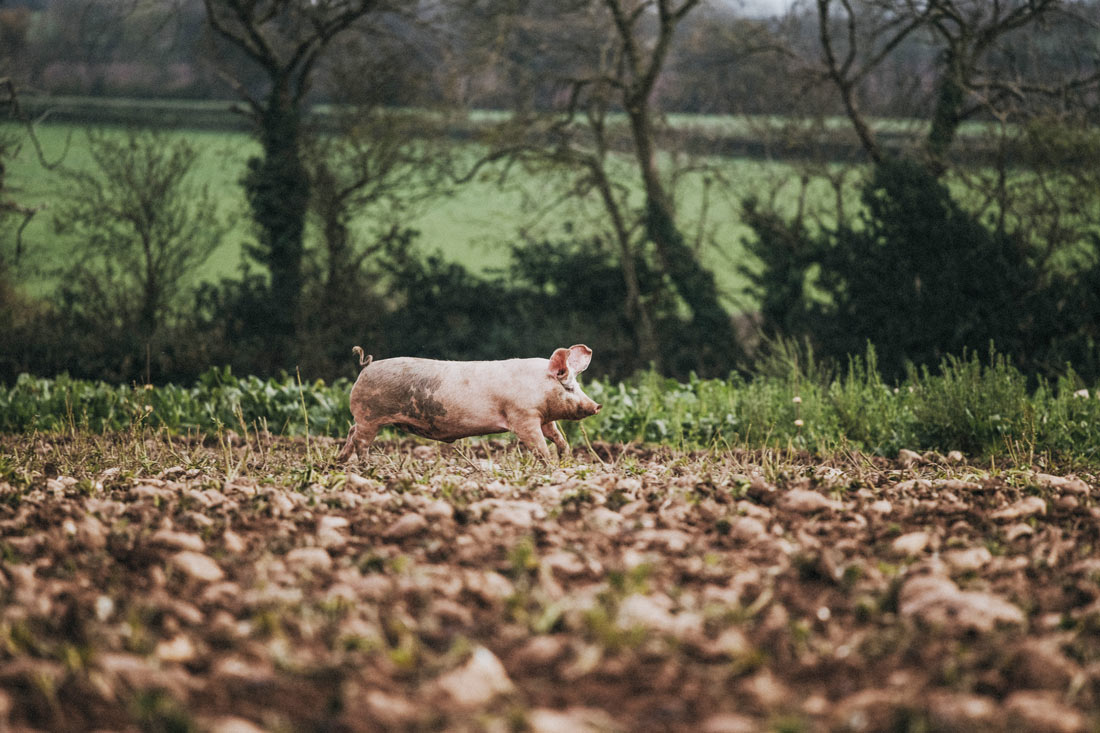
The case for pasture-raised meat
However, there is an alternative to intensely farmed meat. Locally reared 100 per cent pasture-fed meat, where animals spend most of their time outside grazing the land, is heralded as the sustainable swap, but is it any better for the environment?
‘Simply put, grass-fed meat is a big step in the right direction,’ says Mukti Mitchell, environmentalist and founder of Carbon Savvy.
‘Switching from processed, soy-fed meat from Brazil to local, grass-fed meat will undoubtedly reduce the carbon footprint of your diet. At the same time, reducing your meat intake by half will also reduce your footprint – and going vegan even more so.’
It’s unlikely British meat-lovers are going to go plant-based overnight, but a shift towards choosing local, pasture-fed meat while simultaneously adopting an ‘eat less but better quality’ approach could set us on the path to a more sustainable food system.
Farming for the future
The South West is home to many sustainable farms that feed their animals by allowing them to graze the pasture, instead of giving them the grain typical of intensive farming.
Mukti believes these farms can be part of the solution to the climate-change crisis.
‘Farming, done the right way, absorbs CO2 and buries it in the soil,’ he says. ‘There are organic beef farms in the UK with low densities of cattle grazing on very deep-rooted and tall grasses which sequester more CO2 per hectare than forest.’
Tim agrees: ‘Eating a small amount of 100 per cent pasture-fed meat and dairy isn’t just sustainable, it’s positively good for the environment because it’s a farming system that locks carbon in the soil and can help to restore our depleted biodiversity.
‘Instead of a handful of feed plants like rye grass and maize, farmers use herbal leys and natural meadows where 20 or more types of grass, legumes and herbs provide cattle with a healthier diet, and without the need for artificial fertilisers. These kinds of fields are also far better for birds, butterflies and bees.’
The downside of pasture-based farming is that production is slower and more expensive than in intensive farming.
‘We have to accept that our farmers won’t be able to produce such a large quantity of meat and dairy, but they will be able to produce higher quality, with better taste and more minerals and vitamins,’ adds Tim
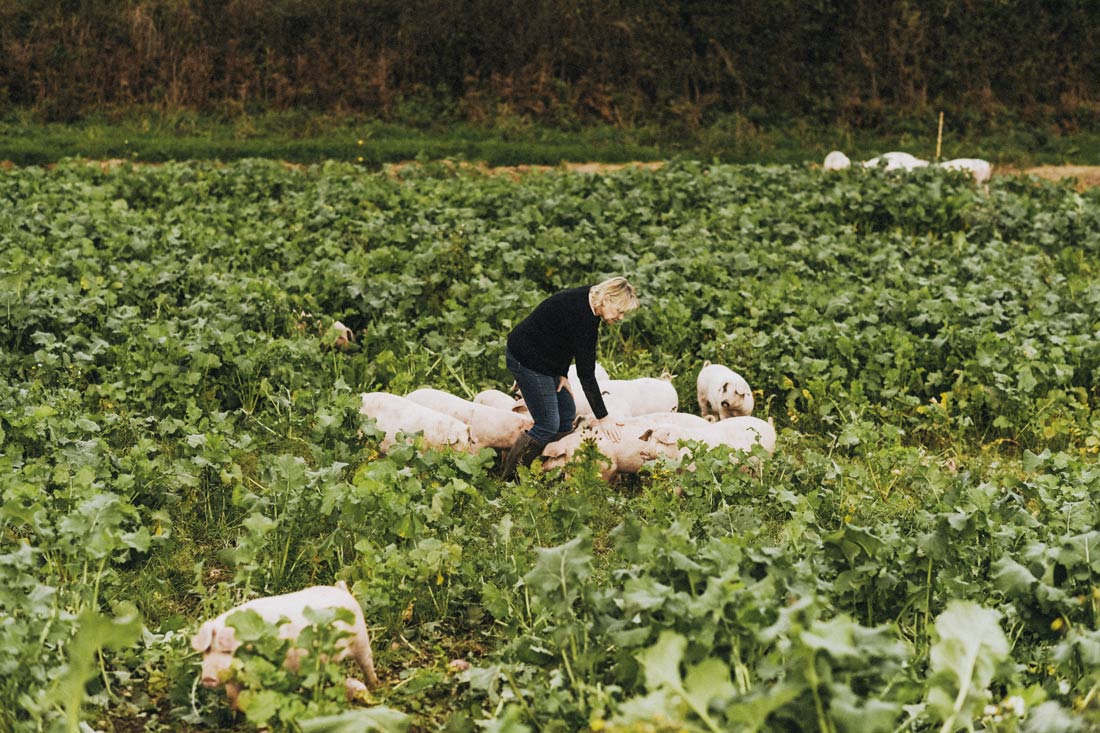
A boost for British farming
Pioneering farms such as Darts Farm and Pipers Farm in Devon have adopted a sustainable, pasture-led method of farming.
‘The move to eating less but better quality meat has seen our business grow in the past five years,’ says Abby Allen of Pipers Farm.
‘Intensive farming methods, environmental impact and poor animal welfare have driven many people to be more considered about their meat purchases – wanting to know where their meat comes from, how it’s been reared and buying direct where they can.’
It’s a challenging time to be a farmer in the UK: costs are rising, labour is in short supply and subsidies are disappearing. However, Abby believes a smaller-scale, more sustainable approach to farming could be part of the solution.
She says: ‘It’s critical we shift away from the industrial commodity food system which has proved to be highly dysfunctional through the pandemic and gas and labour shortages. Shorter supply chains that value people fairly for their role in sustaining communities must be the way forward.
‘Truly sustainable farming is about working with nature to produce wholesome, nutritious food. It’s about ensuring farmers have financial resilience and can sustain a good living while providing for their communities.’
Alt meat and two veg
The ‘choose local’ and ‘eat less but better quality’ meat messages are loud and clear, so what should take meat’s place on the plate on the days when it’s off the menu?
The popularity of ultra-processed meat alternatives has rocketed in recent years and supermarkets now stock an extensive range of plant-protein burgers, bangers and mince. However, in the ongoing omnivore vs herbivore debate, many of those in the meat camp accuse alternatives of being just as bad for the planet and our health as meat.
Mukti says: ‘Even ultra-processed plant-based “meats” have a fraction of the carbon footprint of most grass-fed meat because growing plant protein takes a fraction of the area and energy required to produce the same amount of protein as meat.’
Ultra-processed plant-based meats may be better for the planet, but are they good for our health?
‘The UK already has the highest consumption of ultra-processed foods in Europe; we need to prioritise getting more real nutrition on our plates,’ says Abby.
There are, of course, natural protein alternatives to real meat and ultra-processed faux meats. Beans and pulses provide plant-based protein, are simple to prepare and have a much lower carbon footprint than meat protein.
‘Whole beans and pulses offer great alternatives and are grown in the UK but aren’t given the airtime they deserve. Perhaps that’s because they don’t have the funding and marketing power of Big Tech and Big Food,’ adds Abby.
Food and farming’s role in our battle to prevent irrevocable climate change is a contentious issue. However, it’s clear that pasture-raised meat can be part of the solution if we’re all willing to have less meat and more plants on our plates.
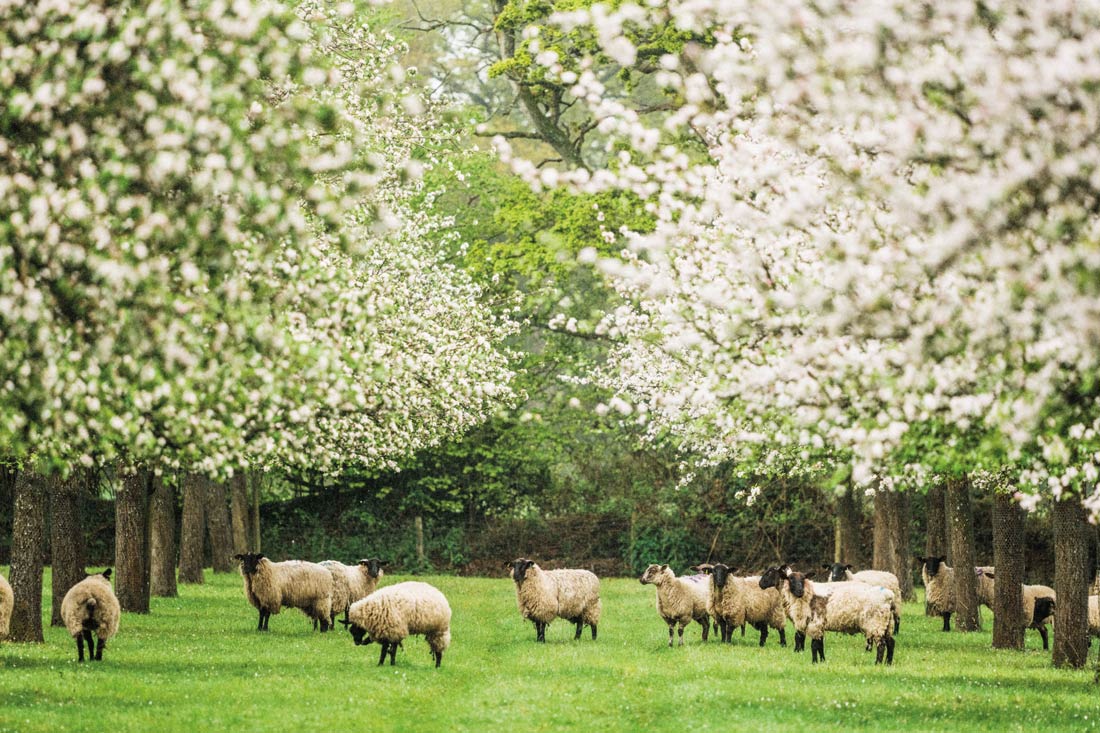
Where to source pasture-raised meat in the South West
Cornwall
Boscarnon Farm, The Lizard
Chypraze Farm, Morvah
Philip Warren Butchers, Launceston
Tregullas Farm, The Lizard
Treway Farm, St Austell
Devon
Darts Farm, near Topsham
Eversfield Organic, Okehampton
Fowlescombe Farm, Dartmoor
Higher Hacknell Organic Farm, Umberleigh
Marshford Organic Foods, Bideford
Pipers Farm, Cullompton
Dorset
Gutchpool Farm, Gillingham
Lymburghs Farm, Sturminster Newton
The Dorset Meat Company, Sutton Waldron
Somerset
Bill the Butcher, Nunney
Farm2Fork, Ilminster
Glebe Farm, Lilstock
P&K Meats, Street
Bristol
Blagdon Butchers
Meatbox
Gloucestershire
Cotswold Beef, Whittington
Homegrown at Hampen, Andoversford
Ruscombe Beef, Stroud
Check out your local farmers’ market and farm shop for more producers local to you.
Images by Matt Austin for Pipers Farm
Share Should meat be off the menu? with your friends

